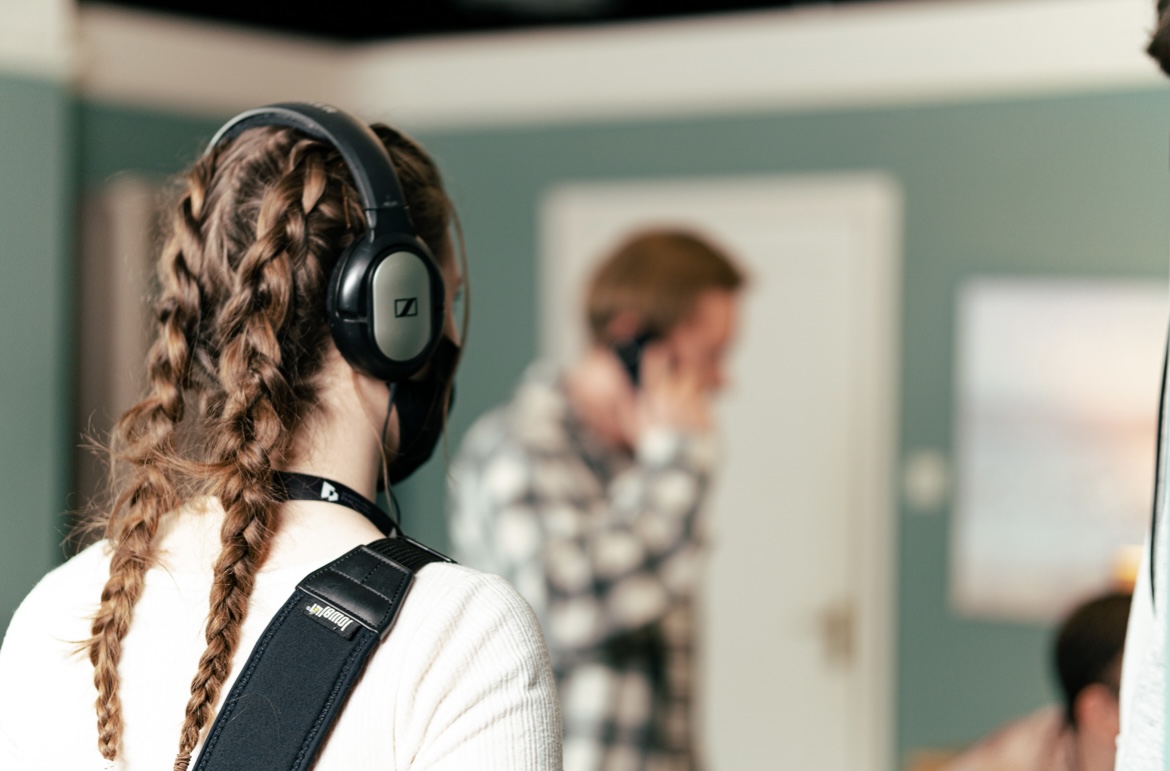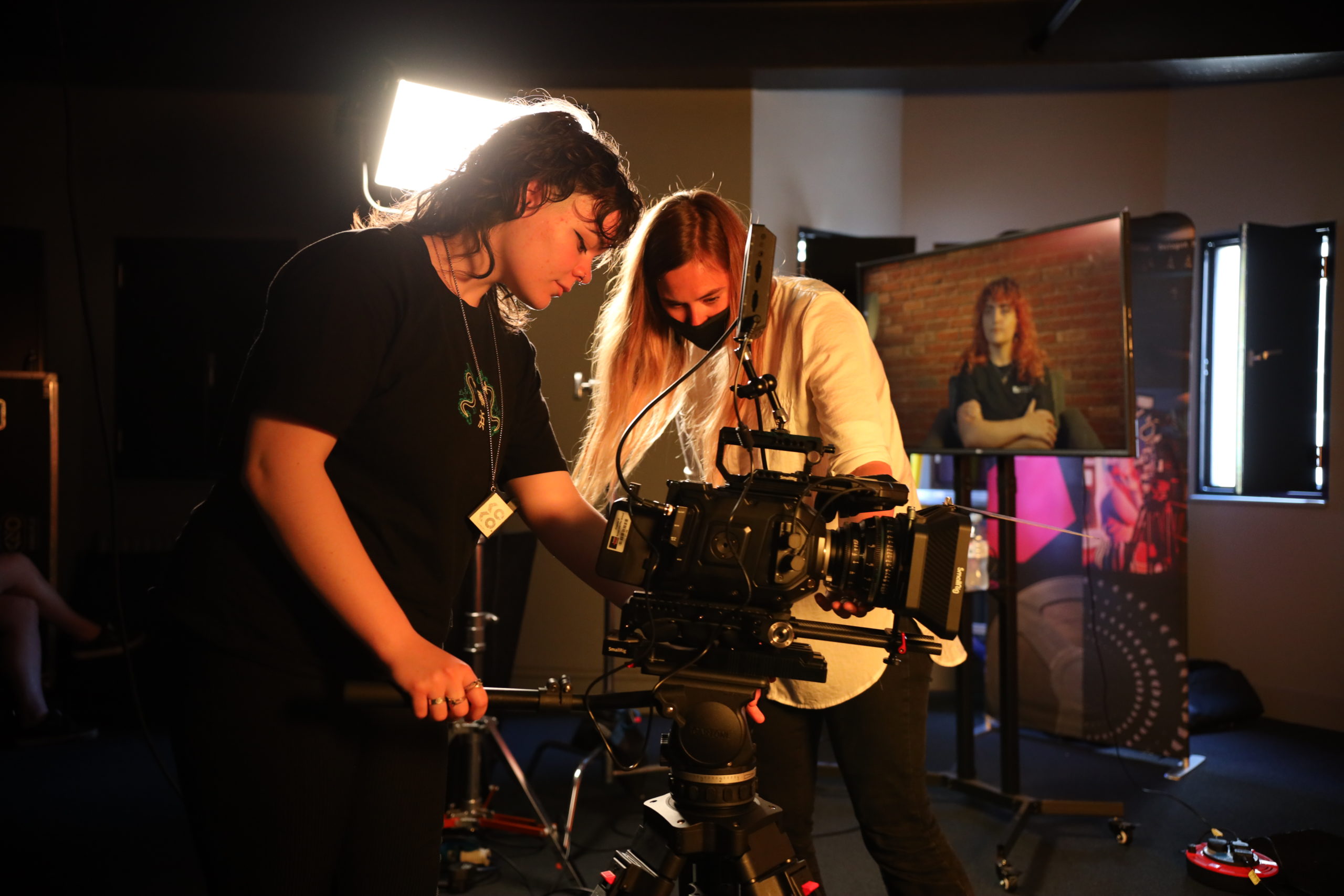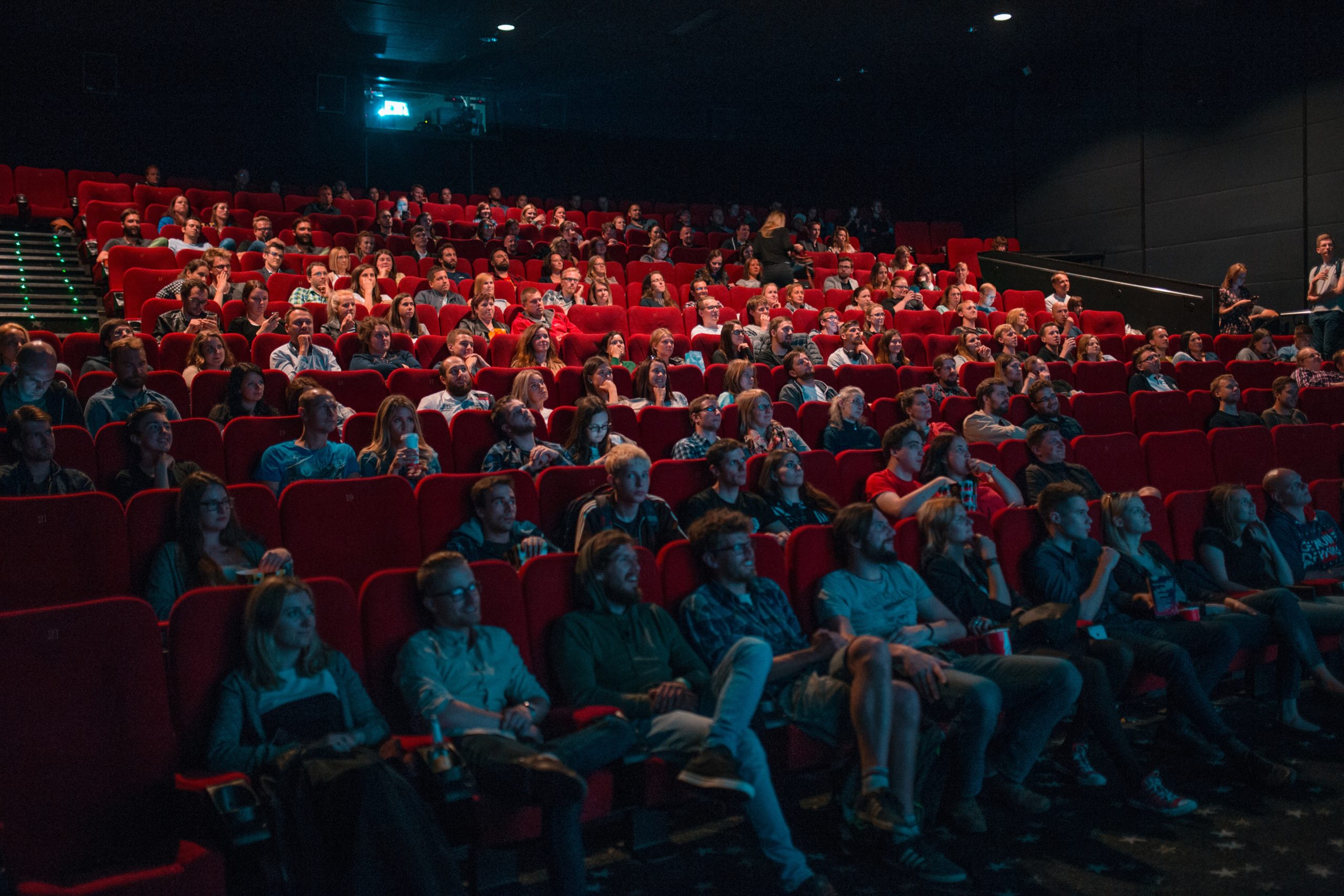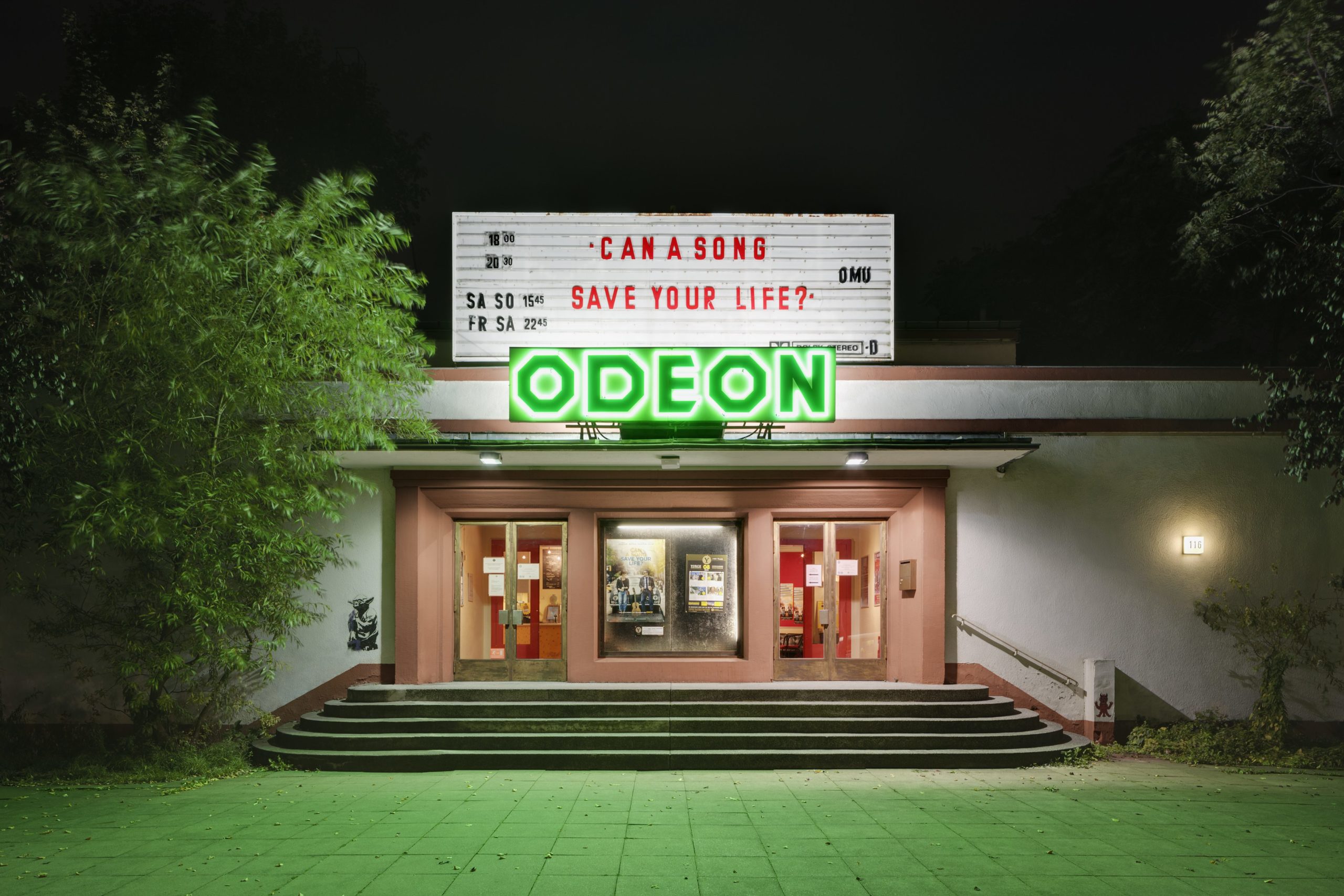Welcome back to Make a Scene, a series in which we delve into the filmmaking minds of some of our students to hear more about their passion for their specialisms, their film school experience, and to get some handy advice for future applicants.
This time, we caught up with BA (Hons) Filmmaking student and soundie, Ellen, to discuss her experience at Screen and Film School Brighton so far:
What sparked your initial interest in film?
When I was 11, I read The Hunger Games books and became obsessed. When I later watched the movies, I was taken aback by how they were able to create this world and show it in different and more engaging ways. From there I became captivated by how movies were made.
What was the first film you ever remember watching?
The Hunchback of Notre Dame. I was having my hair done at my auntie’s wedding and they played it for me so I would sit still!
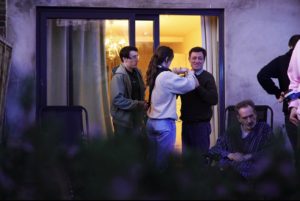
Why did you decide to study at Screen and Film School?
Before the Screen and Film School open day, I had decided against going to university. However, upon seeing the campus and listening to the presentations, I was shocked at how my mind had been completely changed. It was the small size of the school, along with the focus on developing our skills from zero to being ready to enter the industry, that really spoke to me. Other filmmaking courses I saw were focused on showcasing their fancy facilities and alumni. Screen and Film School’s focus was on our filmmaking career and how they would support us – even after graduating.
What is your favourite part of studying your specialism?
One of my favourite things about my specialism (sound) is that we are always in demand, which allows me to collaborate on a wide range of projects and get a lot of practice.
What has been your highlight of studying at Screen and Film School so far?
My current highlight would be the end of year screening that was held at Komedia. With deadlines and all the projects finally being over, it was lovely to be able to see everyone again and finally watch the films we’d all put blood, sweat and tears into! On top of this, the fact that our films were being screened on a huge cinema screen added to the excitement and satisfaction. It felt as though all the hard work had paid off and made me want to work on another one as soon as possible.
What have been some of your greatest moments as a filmmaker?
Looking back on my filmmaking experience, the days that stand out to me are the most painful ones! The days where you’ve been on set since 9am and it’s 8pm, you’re all hungry and tired and want to go home. It’s only when I would get home, that I would look back on the day and realise how much fun I’d had. It’s these lengthy periods on set where you bond as a crew, especially because often you’re brainstorming how to overcome the various problems that crop up.
Have you had to overcome any challenges?
A big challenge for me was motivating myself with studying after COVID. I had become used to doing my lessons in bed and the second they were over, just going back to sleep rather than doing anything productive with my day! Thus, when it was time to start second year, without the COVID limitations, it came as a shock. After seeing my fellow students be so motivated and proactive, it made me realise that I was going to be left behind if I didn’t start putting in more effort. This was hard to do, however definitely worthwhile as collaborating with other filmmakers opens so many doors to new opportunities that allowed me to develop.
What was the best piece of advice you received as a filmmaker?
Be accountable and honest about your mistakes. It is easy to shy away from doing so, however, when filmmaking, you are heavily reliant on one another and being open and honest builds trust, making the process smoother. It will also make people want to work with you again.
Why is collaborative working so important in film?
The course has been heavily collaborative this year. There have been so many opportunities to work with other students which, in my opinion, has made a noticeable different in the outcomes of our short films. For instance, we have multiple modules where we are required to form crews, various social media groups that allow us to contact each other to work on projects, and even blended lessons so different specialisms have the chance to work together in a practical environment. With a film, you are relying on your crew to get the job done. Trying to do so alone would be nearly impossible. Therefore, the ability to work collaboratively with such a diverse range of people is a required skill.
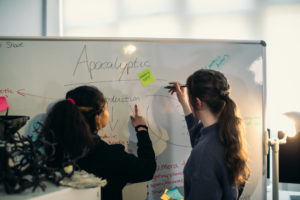
Where do you see yourself professionally in the near future?
In the near future, I am hoping to have secured a role as a production runner. This is an entry level position which allows you to develop more skills and meet a range of people within the industry.
What advice can you give applicants as they approach the beginning of their Screen and Film School journey?
Don’t be afraid to try new things or new opportunities. In this industry, every person you meet can open a door so don’t shy away from that. Try everything, even if you’re not sure about it, as in the film industry someone who is familiar with a wide range of areas is the most useful.
